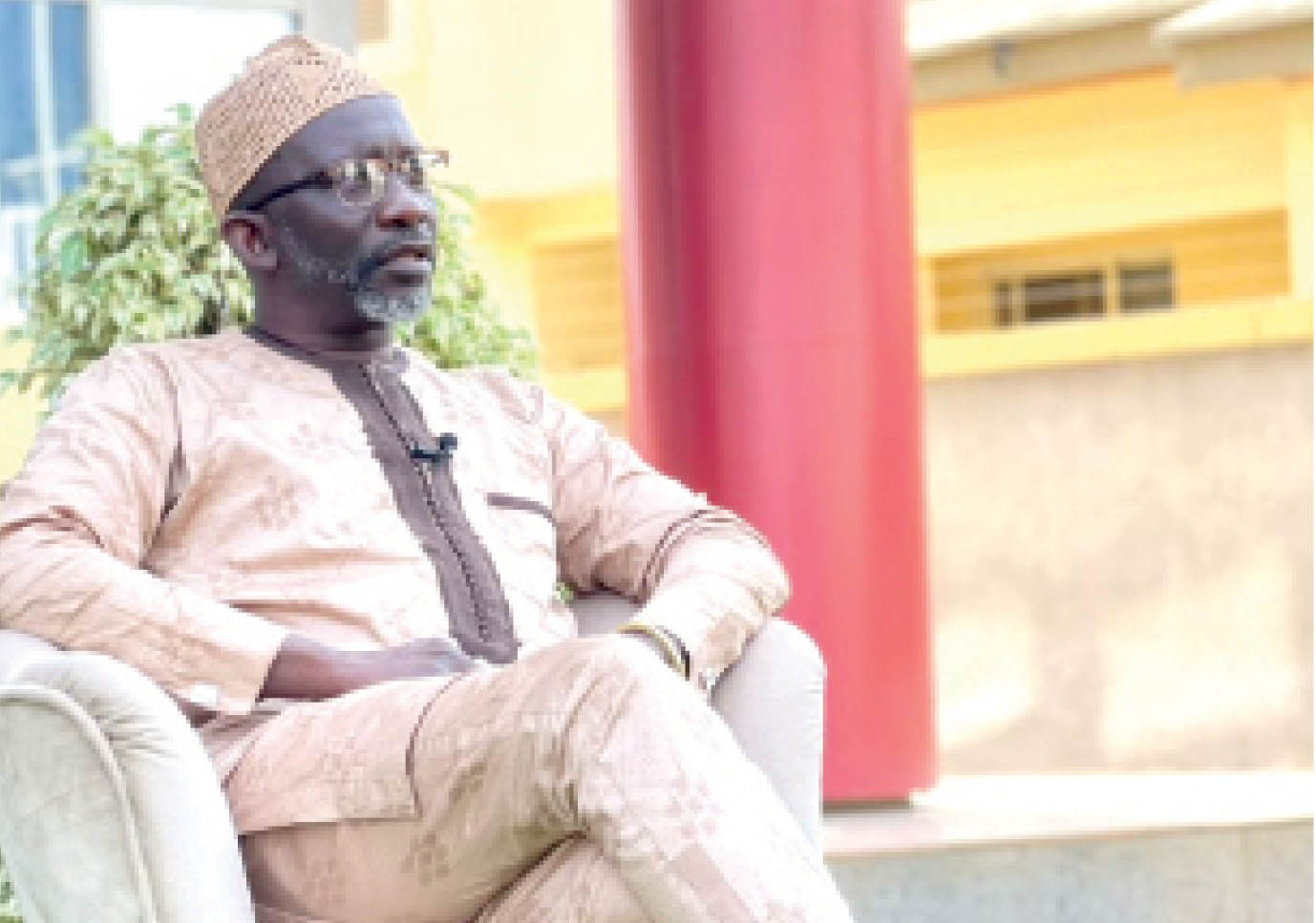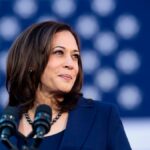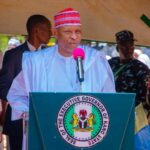Pius Abdullahi Ali is the first African Muslim to be elected as a councillor in the United States of America. He was elected into that office in City Portland in the state of Maine. In this encounter, he spoke on how he achieved this feat, as well as other interesting issues.
Ayuba Iliya & Jamilu Adamu
Daily Trust Saturday: Your name suggests that you have both Christian and Islamic backgrounds, is that correct?
Pius Abdullahi Ali: I have been keeping it as a secret; however, I have to share it. I was born and raised in Ghana as a Muslim. When I was in high school I had an African Culture teacher who usually asked us to share the meaning of our names. When it was my turn I always told him that my name, Abdullah, meant someone who worshipped God. The teacher asked the class if there was anyone who didn’t worship God and we all said no. Half of the class was Muslims and the other half Christians. He went on to give us an assignment to look for a different name.
Two days later in his class, I announced that my name was Pius Fellow. The teacher started calling me Pius. That was how it became my name.
After high school, I worked in a media firm as a photographer and always wrote Pius Ali as my by-line. So I became known by this name, which I accidentally gave myself. When you become a citizen in the US you have the right and opportunity to do whatever you want with your name, so I formally adopted it.
DT: Why did you decide to adopt the name officially?
Ali: There are hundreds of other people known as Abdul Ali in my community. I also live with other immigrants from other parts of Africa and you can find hundreds of Abdul Ali, so I wanted to be different. I didn’t want to be mistaken for someone else, so I made Abdul my middle name, and Pius my first.
DT: Being an immigrant, how were you elected as a councillor in the US?
Ali: When I had the opportunity to go to the US in 2000, I planned to work for a year as a photographer. About a year into my stay (September 11), being someone with a Muslim name, I reasoned that if I left I would not come back to the country, so I stayed.
I left the city of New York where I lived in 2002 and started working with young people in a neighborhood organisation – young people who were out of school, to get them perform their homework and do some projects. I started a leadership programme that led me into community building, referred to in the US as marginalised community members, which is community school. They are economically disadvantaged immigrants, especially Russian minorities the system does not pay necessary attention to.
In the structure of government in the US, you have the federal, state and county in some places, as well as board of education. Their property taxes are used to fund their education. The Board of Education once did budgets for schools and looked at the policies that would guide them, including the kind of materials given to kids. I ran for a slot on that board after one of my colleagues kept saying that I could do it. That was in 2013. In 2016, I ran again for the City Council, which is one step up from the Board of Education and got elected,
DT: It is said that you experience different categories of discrimination because you are black and a Muslim; what gave you the courage to stand for the election?
Ali: I think working with young people in the neighborhood was an elevated platform. I realised that the challenges these young people were facing were not just in the neighborhood, it impacted on their parents and many others in the communities, so I worked in the Board of Education to make a change. I thought that the possibility of increasing what I was doing at the city level was possible. I also believed that the people of the city I was working closely with paid attention to what I was doing. It was also an opportunity for me as an immigrant, a black man and a Muslim to give back to the society that has given me so much.
The least I can do in an elected office is public service. So I saw it as a calling to make policies that would impact the life of everyone who lives in that jurisdiction.
DT: It is said that America is a land freedom for everybody; how true is that assertion?
Ali: Yes, America is a land of opportunities for everyone who goes there; it also has a history of marginalised people. So when you find yourself in America you want to become part of the society in order to balance your understanding and find your way. Opportunities are out there for anybody, but you have to focus on what you want to do.
When I was coming to run for the office, I said I was a public servant, not a politician. As a public servant, I never knew that I was building an elected office. Because I am giving back to the society, the people recognised what I have done, built trust in me and elected me.
DT: Looking at your experiences in America and Ghana, what do you think of politics and governance in both countries?
Ali: Politics is politics wherever you find yourself in the world. However, I tell people that when you find yourself in a leadership position, whether elected or appointed, you need to know that you are not there because of who you are as anybody could get that opportunity. You are there for a reason – to serve the people. So, anytime you make a decision, ask yourself who it would impact and how it would impact that person. That is the only difference between what obtains in America and African countries.
DT: We understand that your grandmother grew up in Kano, Nigeria many decades ago; what do you think about cultural and social interaction?
Ali: My connection with Hausa people is through my mother; you know they travel across West Africa. Some of my people ended up in Ghana. They have established connection through marriages or migration. There were intermarriages between Kano and Ghana, probably as early as 800 years back.
DT: How would you describe your family life?
Ali: I have two kids. Raising kids is influenced by the culture of the society where we live. For example, I cannot live in the US and raise my children like the people in Accra. I have to think of how to raise my children to be productive to the society they are in. But they know where their parents are coming from and who they are. This can make you a better person for your society.
Raising kids in the US is not easy, it comes with a lot of challenges, so if you are able to connect with children, it would help you.
DT: From your experience in Africa, what do you think your children are missing?
Ali: When I was growing up in Ghana, my grandmother could pick up kids who were misbehaving and inform their parents. You cannot do that in the US. In Africa, we could allow our kids to play with sand and the environment, but that is not how it is done here. The joy of communal life, where the community raises the child, is not felt here. In Africa, you know every neighbour; every man is your uncle, even if you are not related. That communal life is missing here. However, if you go to church you will find it, depending on where you go. If you are a Muslim and you go to local masjid you can find it. The Jewish community also does that. These are the two differences. I wish my kids experience what I experienced, in addition to what they are experiencing now.
DT: How often do you go home?
Ali: I was at home 21 years back. I have always gone to Ghana. I have been to Kano a couple of times. I will be in Ghana on Saturday. I always let things happen the way they are supposed to; I can’t say things about tomorrow.

 Join Daily Trust WhatsApp Community For Quick Access To News and Happenings Around You.
Join Daily Trust WhatsApp Community For Quick Access To News and Happenings Around You.


